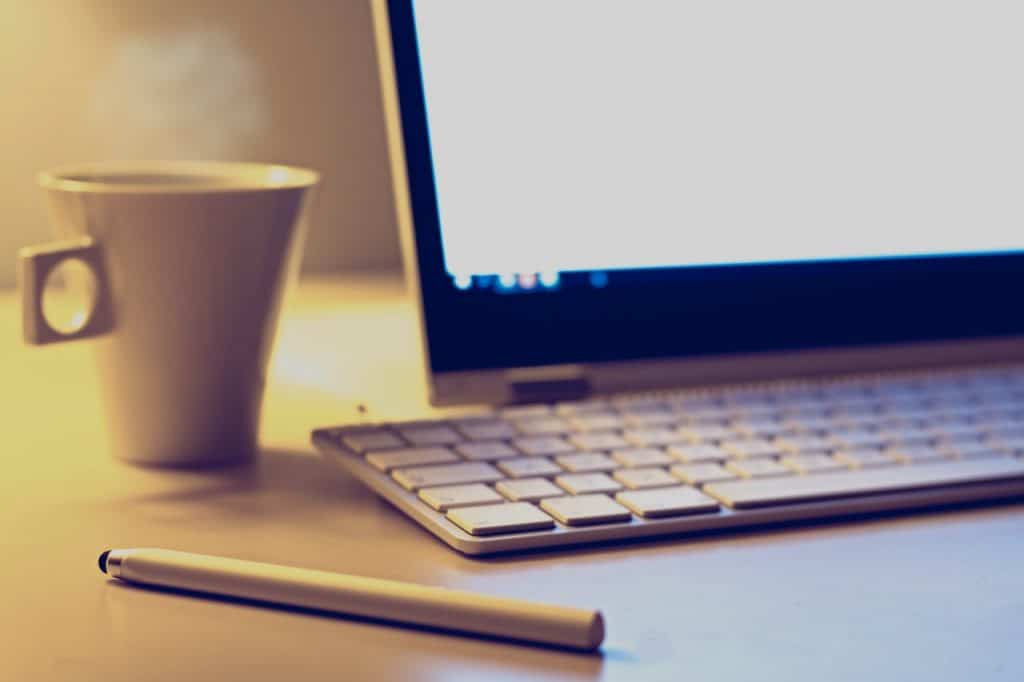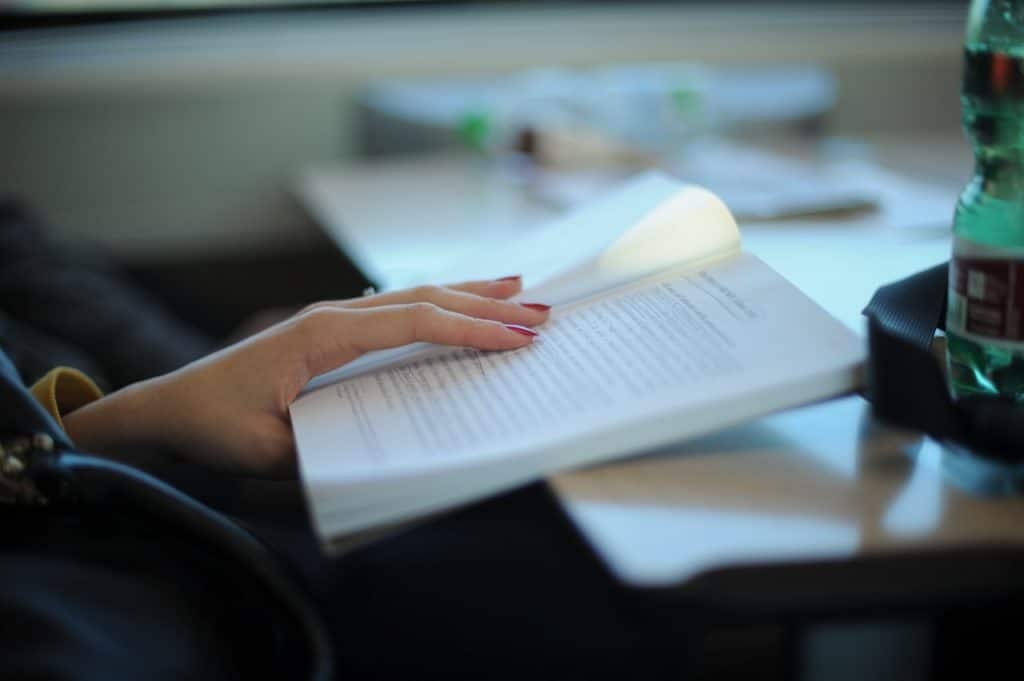If you’re here, you are probably procrastinating actual studying by reading about studying. That’s okay — we all need a break sometimes! Prop that math book open, twiddle your pencil in your fingers, and keep scrolling. We’ve got lots for you to read, so let’s dive in!
You are probably wondering when is a good time of day to study. Should you be rising before the sun, rubbing the grit from your eyes, and settling down for an hour of sleep-deprived history readings before school? Or would you do best to stock up on coffee, chips, and chocolate bars, and feverishly work math problems late into the night?
What Does the Research Say About the Best Time to Study?
Full disclosure: there is not sufficient research on the study habits of students to pinpoint a specific, one-time-fits-all hour of the day to optimize your studying. It’s different for everyone. That said, there are some definite pointers research can give us:
First, research shows that spacing out your studying leads to more long-term memory. For example, if you need to study for five hours over a certain week, you would do better to split it into a few sessions — say, an hour or so every other day — rather than pulling one five-hour study session.
Second, the typical young person’s ‘natural day’ and highest cognitive function begins somewhat later than the typical adult’s — which is to say, now you have an excuse for feeling groggy in the morning! This article discusses a study showing that later class times resulted in higher learning among college students. Specifically, classes after 11 am or noon were preferred over classes at 8 am.
Note, this doesn’t mean that studying at eight is a poor choice, by any means. If you have the time available, go for it! We’ll discuss daytime versus nighttime studying below, but ultimately the choice is yours.
Third, sleep is important, so sacrificing hours of sleep for studying on a daily basis is probably a no-go. It’s better to plan your studying and sleep in conjunction, so that one does not cut in to the other. If you know you need at least three hours of studying before an exam on Friday, you would do best not to begin studying at 9 pm on Thursday night — the missed sleep will hurt you the next day.
Fourth, a balanced diet improves cognition, so those chips and chocolate bars are also off the table. Make sure you’re eating enough of the right foods during your daily routine — it’s no fun to study when you’re hungry!
Also on this note, different people react differently to caffeine and sugar intake. Pop culture is all about chugging copious amounts of coffee, but is that what works for you? Many students report that too much caffeine makes them jittery, shaky, or unable to focus. Do what makes you feel best!
What’s Typically the Most Productive Time of Day for Students?
Ultimately, there is no one optimum time. However, the typical person’s ability to focus deteriorates during the night, and caffeine and green tea can only do so much. Additionally, disrupting your normal sleep schedule to get up early and study can have negative effects, as you will be understandably groggy, and likely be less focused than you would be later in the day.
One important note is that exercise increases brain function, so if you are able to incorporate exercise into your day right before studying, there are many benefits — increased health, improved mood, and more efficient work time!
Additionally, many students participate in sports, either before school or after school. If that sounds like you, see if you are able to study after practice; either plan to sit down at the library or at home in the afternoon, or look at some quick flashcards after a morning practice. Your body has just been exercised, so now it’s your brain’s turn!
Due to the importance of maintaining your normal sleep schedule, the best time for studying is within the normal range of a day — after your morning routine (on weekends, presumably, as class starts early on weekdays), before your typical bedtime. Within this normal time frame, let’s take a look at your personal habits to pinpoint when is best for you:
When is the Best Time to Memorize? Morning vs Night Studying
You probably have your own strategies for memorization at this point, whether it be flashcards, lists, or speaking vocab words aloud. So, is this best done in the morning, or at night?
The basic issue with mornings is that most students simply don’t have them. If your school begins at eight or nine, that means you’re up at seven or six just to get to school. To fit any morning studying in, you’d have to miss some valuable sleep. This isn’t advisable, especially if you’re already pulling late nights. However, weekend mornings are lovely resources to capitalize on — if you aren’t sleeping through ‘em.
The benefit to studying on mornings — specifically weekend mornings, or any other morning you are free — is that you can give yourself a set time to focus, and have an end in sight. You know you won’t be stuck at your desk all night, trying to cram a topic into your mind. Morning studying is therefore less stressful. As an added bonus, you don’t have all that studying hanging over your head throughout the day.
Night studying tends to be the default for most students. Many people even believe they can focus better at night, when they have gone through the basic tasks of the day, and are finally sitting down to relax. Let’s look at the ups and downs of night studying:
Is there a Best Time to Study at Night?
Generally before you get too sleepy. You should not, again, be missing sleep in order to study — make a plan that will not cost you sleep! Missing sleep will make you less focused the next day, which means that tomorrow’s studying will suffer.
Thus, the best time is the earliest time. Of course, you are probably a busy person, with responsibilities from sports, to family time, to a job. Somewhere in there, you’ve got to eat dinner. So when is the best time to study?
Some students opt for right after dinner — this is a time when there are no more pressing responsibilities, and the whole night is ahead of you. You might take snack breaks, but you aren’t distracted by hunger.
Other students prefer to take a break before or after dinner and relax, then rally and re-focus around nine or ten. This approach also works: you need a little relaxation in your day, and being constantly on the grind wears down even the most hardworking person. Give yourself a moment — you deserve it!
What are the Benefits and Drawbacks to Studying at Night?
Many students prefer to study at night because of certain benefits: it feels nice to have the entire night ahead of you (even if you don’t use it! Sleep at some point), and there are fewer distractions or concerns. Additionally, one’s house is usually quieter at night, which can be more calming and incite focus.
On the flip side, for students who prefer to study in libraries or cafes — and there is much to be said about a change in environment — studying late provides a healthy deadline. If your boba tea shop closes at ten, you’d better hustle to get that practice test done! Especially if you plan to reward yourself with a brownie afterward. Deadlines like this — low-stress, with no real consequences — can enhance productivity.
Studying at night does have drawbacks, namely missing sleep or social events. Sleep we’ve been over; and who wants to study when you know there’s a party going on? Not that you’d get much done the next day if you went.
Additional drawbacks are decreasing focus, which can make you less efficient. A topic that might take you two hours to go over at 1 am could most likely be studied much faster at 1 pm, given the proper environment and focus.
In the end, it’s up to you to balance out the pros and cons, and decide what time of day is best for you to study.
When is the Best Time to Study English?
Studying English generally falls into three camps: learning vocabulary, taking practice tests, and reading.
Learning vocab is a fairly active studying activity, which can be placed at the beginning or end of your studying. It would also be great to review your vocab list at the beginning and the end of a study session, for even better recall.
Practice tests of any sort are a sit-down, long-term activity, and many students find this sort of activity easier at night. That said, it’s also good practice to time yourself when taking practice tests — most real tests are timed, and it teaches you to pace yourself realistically. Because practice tests have an inherent time limit, then, they are easy to squeeze into a morning study session if you know you have just one hour before an engagement.
Reading, with or without annotating, is a relatively long and inactive study activity. You don’t want to start your action list with 200 pages to get through, and then other pressing concerns atop that. It’s best to schedule your reading for a relaxed time — for most, this means later in the day — but also not a time when you will be falling asleep over the page, or reading the same paragraph over and over. Think late afternoon or early evening. We go over some tips on reading textbooks here.
When is the Best Time to Study History?
History tends to be a mix of reading and memorization, so the same guidelines apply.
To memorize the near-endless list of names, dates, and places, you’re going to have to sit down with your notes and press your nose to the grindstone. Use flashcards, if those work for you; if not, recall the topics using another method. Some students pair specific names or dates with hand motions, use mnemonics, or speak the information aloud. Whatever works for you.
Whatever your method for memorization is, it is better to space it out. So, one hour every morning is better than a single extended study session. Most people, especially students, don’t have a solid hour in the morning for studying, so early afternoon is probably the best bet for this type of studying.
History reading is another beast entirely. First you have to figure out what style of reading works best for you: are you a person who can take notes only at the end of a section, with solid recall? Or do you function better taking notes as you read? Maybe you like underlines and highlighters, or maybe you skim for important information. Figure out what works best for you, and how much effort it takes. If you are able to parse through history textbooks right before bed, kudos! Most students prefer to tackle textbooks when they are more awake (and prone to memorizing), so afternoon is ideal.
When is the Best Time to Study Science?
The majority of science is very concept-based, with graphics and drawings to help you understand. There are nearly always vocabulary lists to memorize, but most important is understanding how the models work, whether they be cell designs or atomic structures, anatomy models or a dissection of the earth’s layers.
What time is optimum for this kind of concept-based learning? Well, for most students, science is hard — which is a good reason to put it first, when your brain is fresh. An optimum time would be as early as possible on weekends, or at the beginning of your study sessions on school nights. Are you a person who can sit down to biology right after breakfast? Go you!
Vocabulary for science classes can be reviewed in two ways: first, the same way you review all your other vocab. You know what works best. The second way is to have the list of vocab words where you can see them while you study the big concepts as detailed above. Whenever a vocab word comes up, focus on it — highlight or underline, as comes naturally — and make sure you understand it completely. Do this for each of the vocab words. Then, at the end, review the vocab words one by one, fitting each in to the overall model. This will enhance your memorization both of the words and of the overall model.
When is the Best time to Study Physics?
In physics, concepts and mathematical models rule. Vocabulary words, as they are, are generally just specific definitions of concepts, and don’t need excessive memorization. Once you understand acceleration, for example, you probably won’t need a flashcard to keep it in your head.
So, when is the best time to study physics? The same rule applies as for general science — if it challenges you, do it first. That way you can get it over with, and feel encouraged by your progress, rather than conduct your entire study session dreading a challenging topic at the end. The more time and energy you give to physics, the more confidence you will gain with it, and the more it will open up to you!
If you’re going to study by doing practice problems, the best time of day is early in the day. Sit down, set a timer, and work through as many problems as you can, checking for accuracy as you go. This is the most active kind of studying, so early afternoons during school days, or just around noon on weekends, is the optimum time.
If you want to study by reading or learning models, which is slightly less active, then afternoons or evenings are a good time.
When is the Best Time to Study Math?
Math is all logic, which means that, although it requires plenty of focus, it can be worked through at any time of day. Of course, crashing your head against a particularly snarly problem at midnight isn’t the most encouraging, but ultimately any time of day is a good time to play with numbers. Your brain can follow the routes.
Practice problems can be done at any time of day. It’s good to space out your studying, so doing a few problems after a study session in a different topic can really boost your memory!
Practice tests, on the other hand, are best done when your mind is fresh and ready to focus. If you take a practice test late at night, when your mind is groggy, you won’t be able to focus in the same way. This means that while you may be studying the material, you won’t be teaching your brain how to function through a test. Therefore, the best time to study math via practice tests is in the morning, or the early afternoon.
Wrapping Things Up: When the Best Time to Study Is
Ultimately, you know when your most productive time of day is — and when you, personally, are the most free! That said, the average student has the most brain function between noon and sunset, and can function quite well after that until tiredness begins to set in. Your key takeaways, hopefully, are as follows:
Active studying — practice problems, flash cards — generally go before passive studying — reading, or reviewing notes.
Practice tests are best taken earlier in the day.
It’s better to study for short times, multiple times a week, than to have one long haul at the end of the week.
It’s better to study when you are fully awake, rather than sacrifice sleep for studying.
Early studying is recommended; however, many students have more free time for studying in the afternoon and evening. Both work! If you’re looking for more time management tips, check out our post here.
Finally, we would like to add that interspersing your topics as you study leads to better recall later on. For example, doing some math problems, then switching to a history reading, then more math problems, will aid you more than doing purely math one night, and purely history the next.
Which of these tips or methods do you already use? Which do you hope to incorporate into your studying habits in the future? Do you have any study habits not mentioned here?
The bottom line is to know yourself, understand your habits, and to do the best to stretch your personal limits. Study on!
























